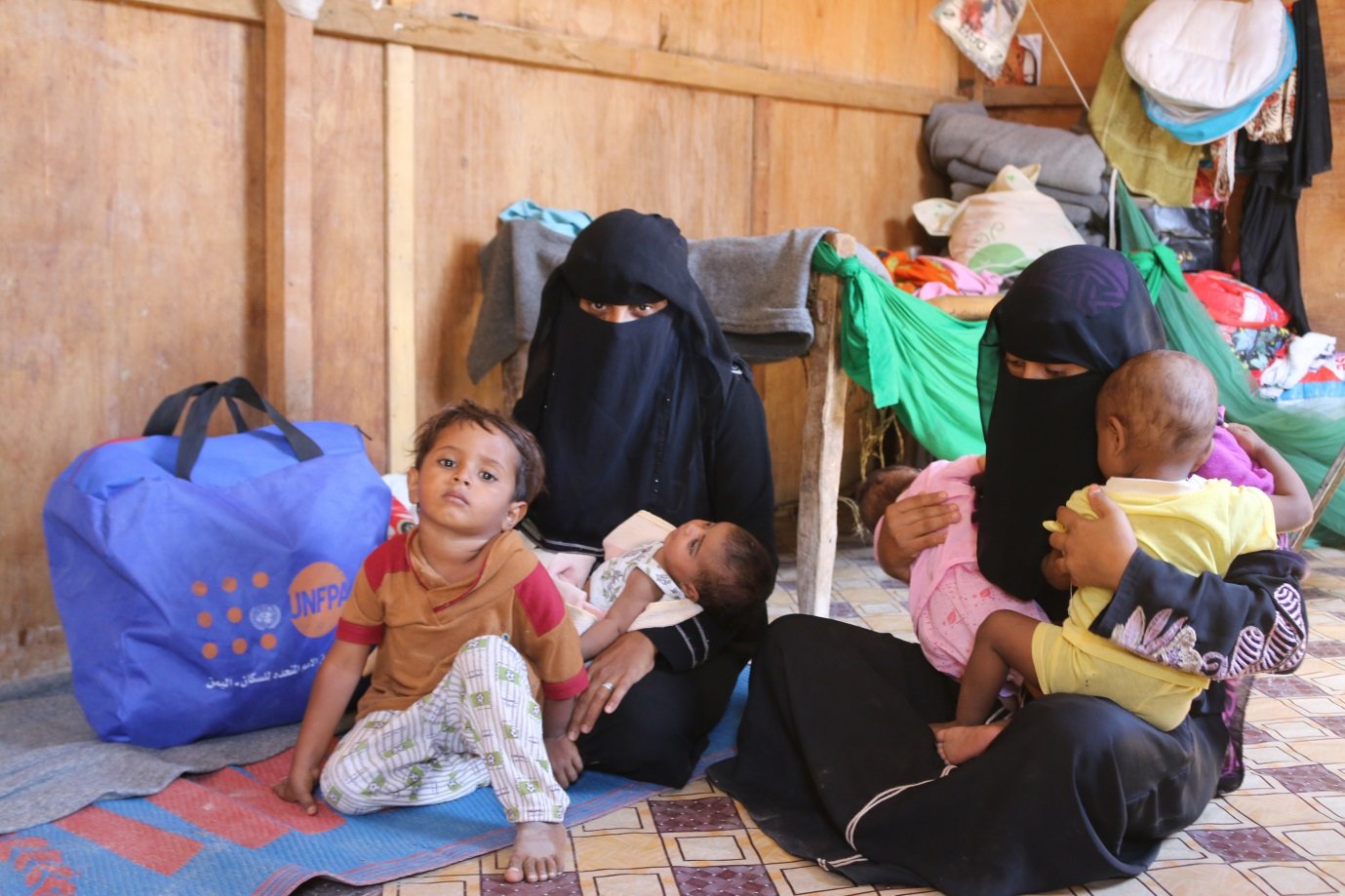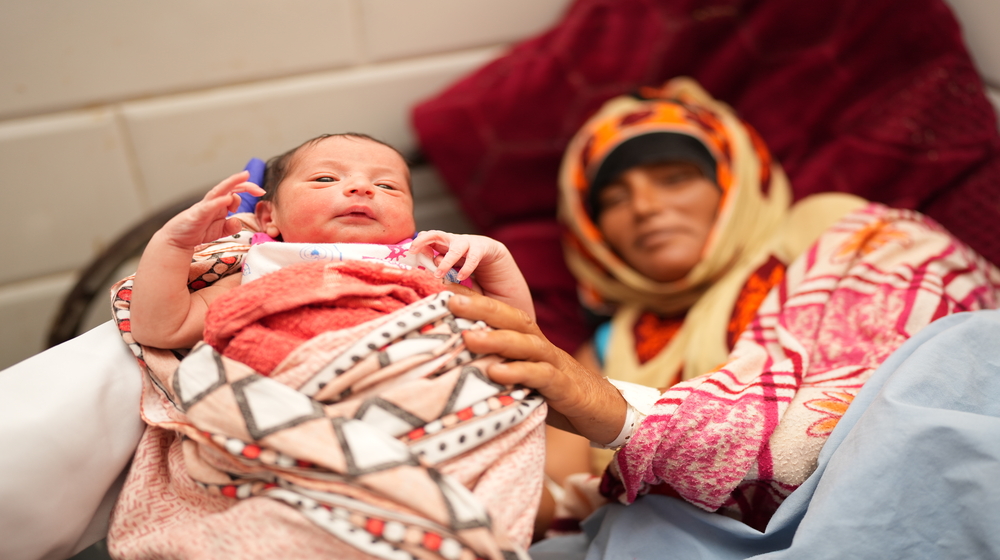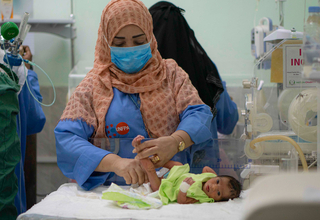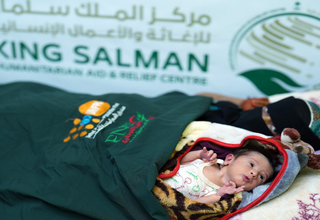You are here
Crisis in Yemen

In March 2015, a prolonged political crisis between Yemeni government forces, their allies, and rebel groups erupted into a nationwide humanitarian crisis. Yemen remains the world’s largest humanitarian crisis and aid operation. Nearly seven years of escalating conflict, economic collapse, disease, natural disasters and the breakdown of public institutions and services have left millions of Yemenis hungry, ill and destitute.
A staggering 21.6 million people require some form of humanitarian assistance in 2023, and 80 per cent of the country’s population struggles to access food, safe drinking water and adequate health services.
Women and girls are bearing the brunt of the crisis. An estimated 80 per cent of the 4.5 million people displaced in Yemen are women and children. Approximately 26 per cent of displaced households are headed by women.
Women's health
An estimated 5.5 million women and girls of childbearing age have limited or no access to reproductive health services, including antenatal care, safe delivery, post-natal care, family planning, and emergency obstetric and newborn care. One Yemeni woman dies every two hours during childbirth, from causes that are almost entirely preventable.
Without access to lifesaving medicines, about 1 million women who are estimated to deliver in 2023 are particularly at risk. Another 1 million women who would want to use family planning to postpone or avoid pregnancy will be at risk of unwanted pregnancies. Lack of access to other reproductive health medicines, including for prevention and treatment of sexually transmitted infections and gender-based violence exacerbates reproductive health morbidity and mortality for both women and men.
Over 1.5 million pregnant and breastfeeding women are projected to suffer from acute malnutrition sometime in the course of 2023. They risk giving birth to newborns with severe stunted growth as a result of rising food insecurity.
Less than half of Yemen’s hospitals remain functional with an estimated 11 per cent fully or partially damaged due to the conflict. This is compounded by extreme shortages of essential medicines, supplies and specialized staff, only 1 in 5 of the functioning facilities is able to provide maternal and child health services. Nineteen out of 22 governorates face severe shortages in available maternity beds – less than six beds per 10,000 people, half of the WHO standard. In addition, an estimated 42 per cent of Yemen’s population lives more than one hour away from the nearest fully or partially functional public hospital.
Women's protection
Women and girls also continue to suffer disproportionately from gender-based violence. While this situation existed prior to the conflict, it is now greatly exacerbated as communities and families increasingly resort to negative coping strategies to survive. With limited shelter options and a breakdown in formal and informal protection mechanisms, girls are increasingly vulnerable to child marriage, human trafficking, begging and child labour, among others. Women and girls with disabilities face an even greater risk of gender-based violence in the communities and available services are not equipped logistically to accommodate their needs.
An estimated 7.1 million women and girls will require services to prevent and address gender-based violence in 2023. However, such services remain overstretched across Yemen, and completely absent in some hard-to-reach areas. At the same time, data on gender-based violence remains extremely thin and unreliable due to fear of reporting, stigma and lack of legal redress mechanisms, among other factors.
The cumulative impact of conflict and deprivation has also taken a heavy toll on the mental health of Yemenis, particularly its women and girls. Mental health care remains scarce, and mental illness is highly stigmatized. An estimated 7 million people require mental health treatment and support, but only 120,000 have uninterrupted access to these services.
UNFPA's response
In response to the humanitarian crisis in Yemen, UNFPA has been striving to meet the urgent health needs of women and girls, with a focus on reproductive health and protection services to women and girls who face multiple forms of violence, working in close partnership with local authorities, non-governmental partners and UN agencies across the country. UNFPA is the sole provider of essential reproductive health medicines and leads reproductive health service provision in Yemen. The reproductive health supply chain being supported by UNFPA serves as lifeline for millions of women and girls in Yemen. UNFPA leads coordination and provision of lifesaving women's protection services throughout Yemen, reaching thousands of survivors of different forms of violence. UNFPA leads the multi-agency Rapid Response Mechanism across the country in partnership with UNICEF and WFP, providing lifesaving assistance to displaced persons on the frontlines.



